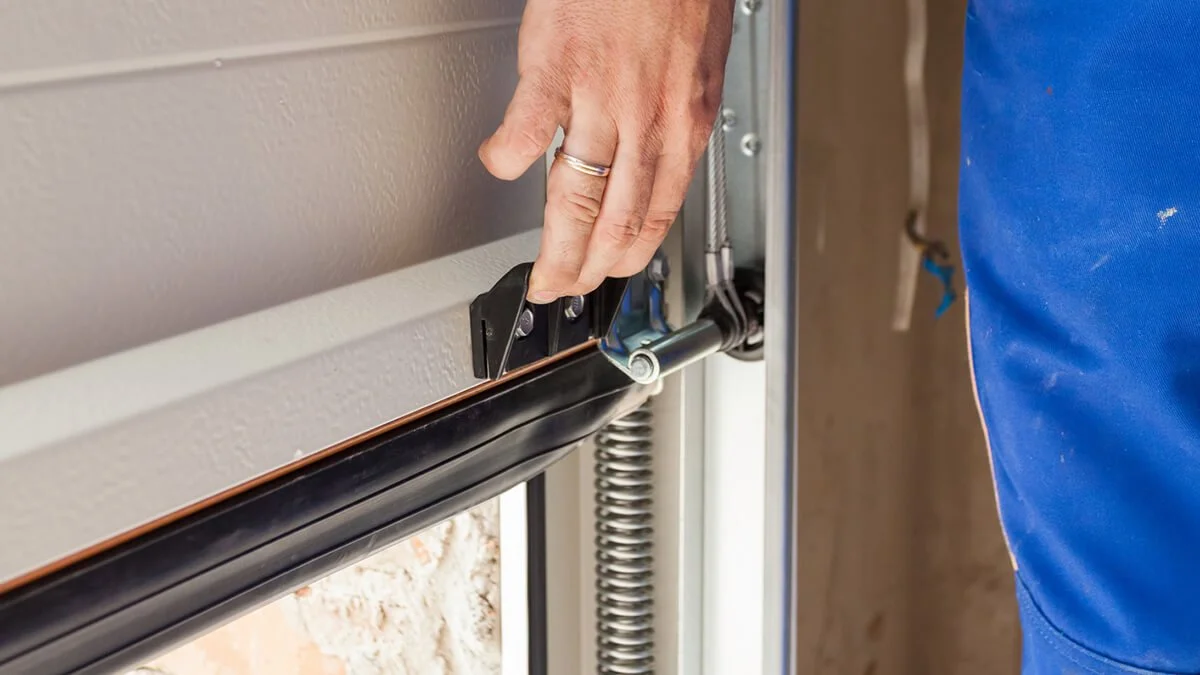Garage Door Springs: How Do They Work?
When your garage door works smoothly, you probably don’t think much about what’s making that happen. But one of the most important — and most overlooked — parts is the garage door spring.
These tightly wound coils do the heavy lifting. They support the full weight of your garage door, allowing you or your opener to raise and lower it safely and easily.
If you’re looking up garage door repair near me, there's a good chance a broken garage door spring is the cause. It’s one of the most common garage door problems homeowners face. It’s one of the most common issues homeowners deal with.
At Swiftly Garage Doors, we help homeowners across Phoenix and nearby areas with fast, expert spring repair & replacement service. In this post, we’ll explain how garage door springs work, why they matter, and when to replacing springs is the best option.
What Are Garage Door Springs?
Garage door springs are high-tension components designed to counterbalance the weight of the door. They come in two main types, torsion or extension:
1. Torsion Springs
Location: Mounted above the garage door opening on a metal shaft
How they work: Torsion springs twist (or torque) to store energy. As the torsion spring unwinds, it rotates the torsion shaft, which in turn spins the cable drums on either end. These drums wind or unwind the lifting cables attached to the bottom of the door.
Lifespan: Around 10,000 cycles (1 cycle = 1 open + 1 close)
Door weight support: Torsion springs can support doors weighing from 130 lbs to over 400 lbs, depending on size and configuration. Many garage doors use one spring, but larger or heavier doors may require two or more torsion springs to balance the load evenly.
2. Extension Springs
Location: Mounted on either side of the door above the horizontal tracks
How they work: These springs stretch and contract to support the door’s weight. When the door closes, the springs stretch out. When it opens, the stored tension lifts the door.
Lifespan: Slightly shorter than torsion springs, usually 5,000–10,000 cycles
Door weight support: Suitable for lighter residential doors — up to 250 lbs, depending on design.
While extension springs are effective, torsion springs offer better balance, more controlled motion, and longer lifespan.
Why Are Garage Door Springs So Important?
Most residential garage doors weigh between 250–600 lbs, depending on material and size. Without properly calibrated springs, your opener motor would strain and eventually fail trying to lift that much weight.
Signs you need garage door spring repair include:
The door won’t open or closes too quickly
Loud “bang” from the garage (a snapped spring)
The door looks crooked or uneven
You hear grinding or straining sounds from the opener
Why You Shouldn’t DIY Spring Repairs
Garage door springs are under extreme tension, and improper handling can cause serious injury or damage. Torsion springs, in particular, require specialized tools and training for safe installation and adjustment.
If you're in Phoenix and searching "garage door spring replacement near me," don't take the risk — call the pros at Swiftly Garage Doors.
Garage Door Service in Phoenix You Can Trust
At Swiftly Garage Doors, we specialize in garage door spring replacement, offering:
Same-day and emergency service
High-cycle springs rated for 25,000+ cycles for long-term value
Proper spring sizing based on door weight, width, and lift system
Highly recommend service across Phoenix area, Mesa, Scottsdale, Glendale, Peoria, and Tempe
Need Garage Door Spring Repair? Call Swiftly Garage Doors Phoenix!
If you're experiencing spring issues or a completely stuck door, don’t wait. The sooner you replace a worn or broken spring, the better for your opener, your door, and your safety.
Call (623) 216-7185 or book online today for swift, expert garage door spring repair and friendly customer service in Phoenix.
Garage Door Spring Maintenance Checklist
Use this checklist to help keep your garage door springs in safe working condition year-round — especially in Arizona’s harsh climate.
| Task | How Often | What to Look For / Do |
|---|---|---|
| 🔍 Visual Inspection | Monthly | Look for gaps in torsion springs, rust, fraying cables, or loose hardware. |
| 🎧 Listen for Noises | Every Use | Squeaking, grinding, or loud pops may signal spring stress or failure. |
| 🔧 Lubricate Springs | Every 3–4 Months | Apply a garage door-specific lubricant to the torsion spring coils. Avoid WD-40. |
| ⚖️ Test Door Balance | Every 6 Months | Disconnect opener, lift door halfway — it should stay in place. If not, springs may be failing. |
| 🚪 Check Door Movement | Monthly | Door should open and close smoothly without jerking or sagging. |
| 🧰 Inspect Cables & Pulleys | Every 6 Months | Look for fraying, slack, or misalignment — call a pro if anything looks off. |
| ☎️ Schedule Professional Tune-Up | Annually | A technician can inspect spring tension, alignment, opener wear, and more. |


